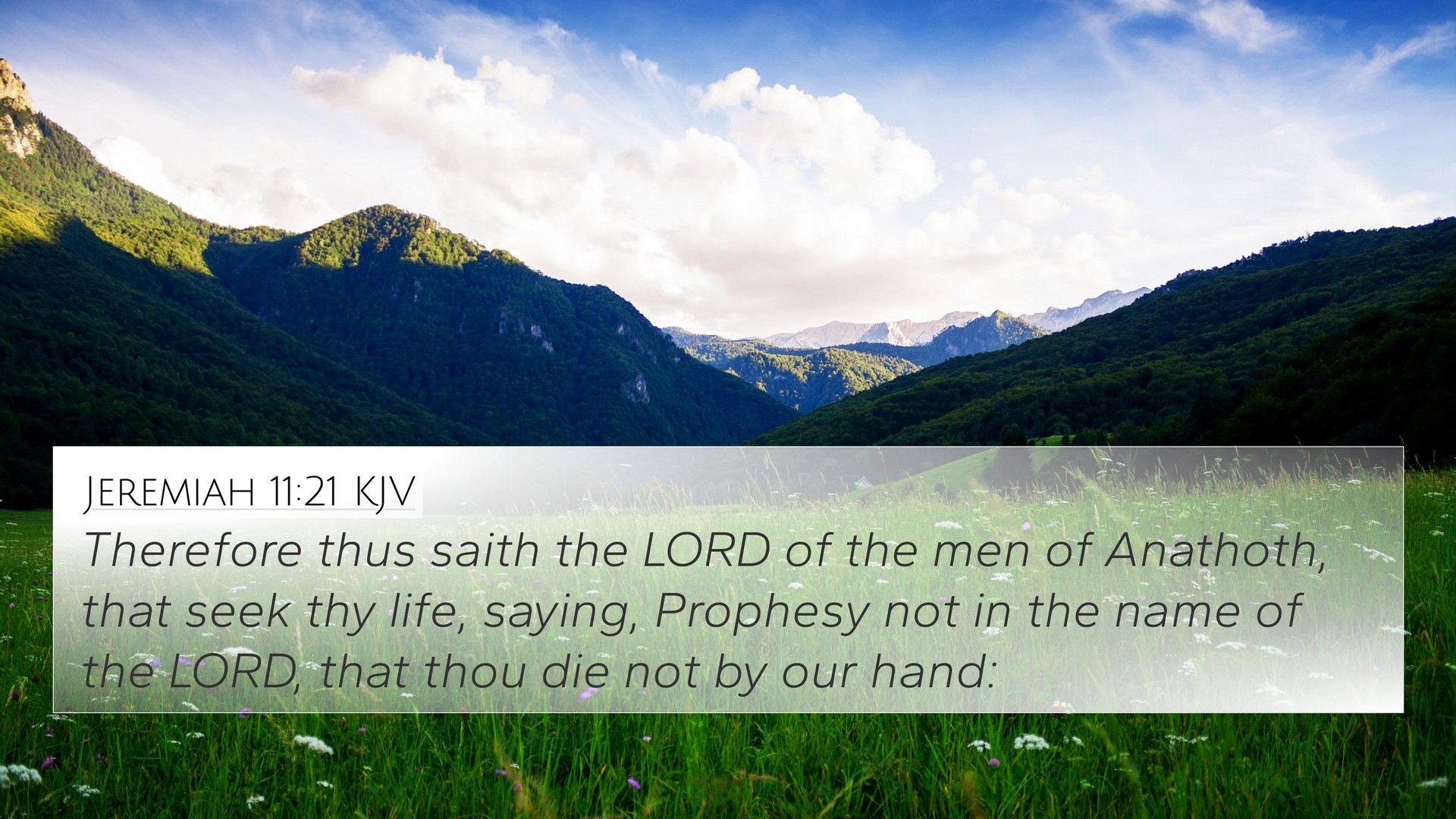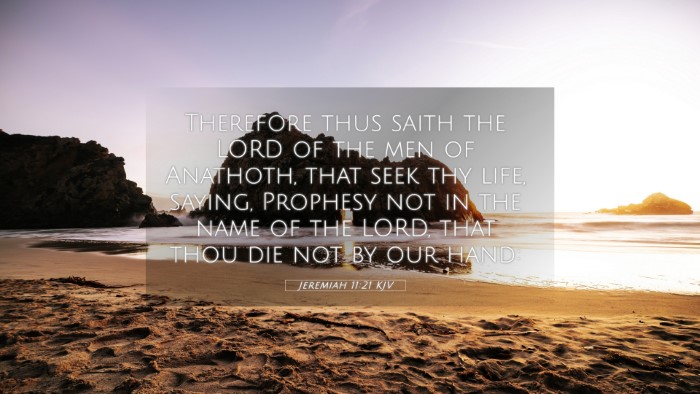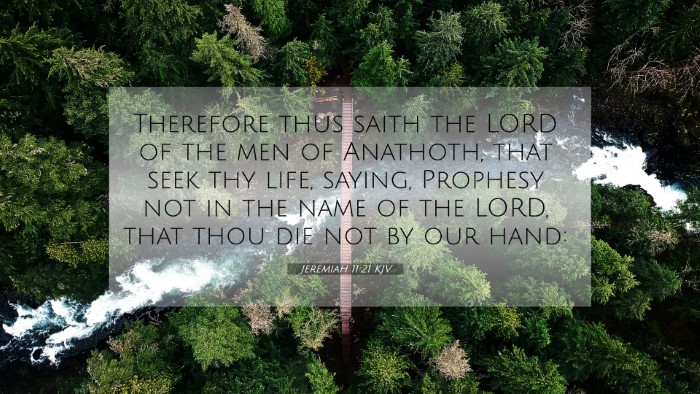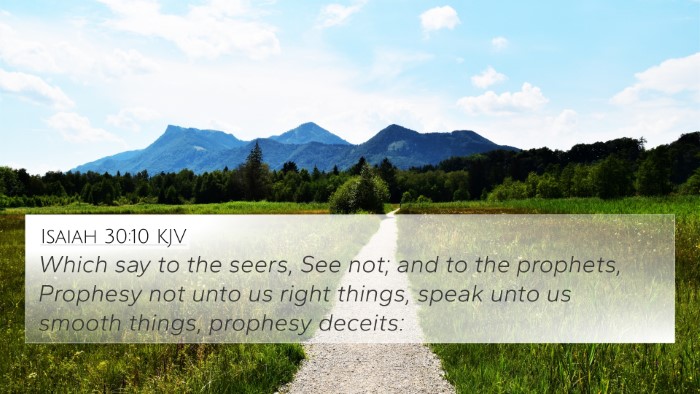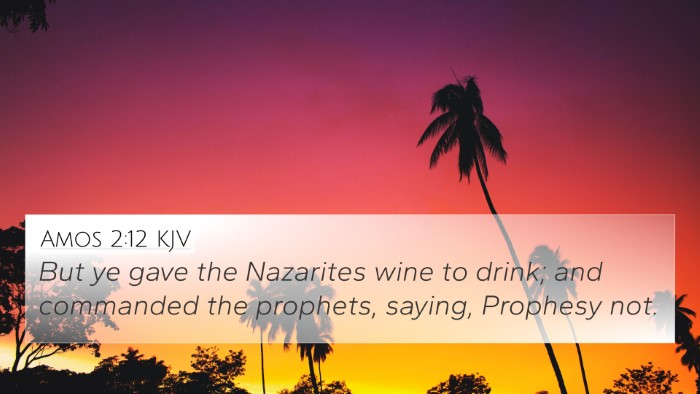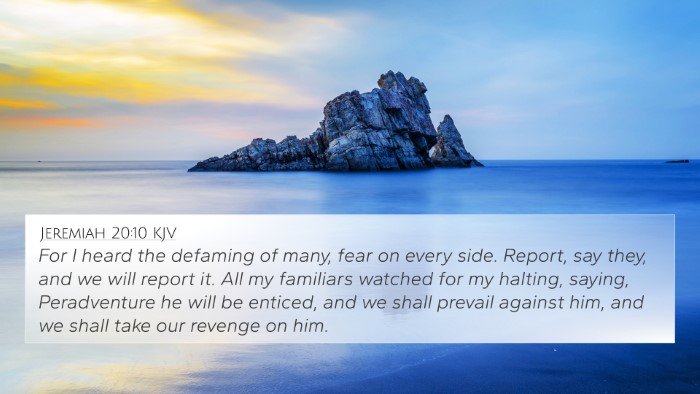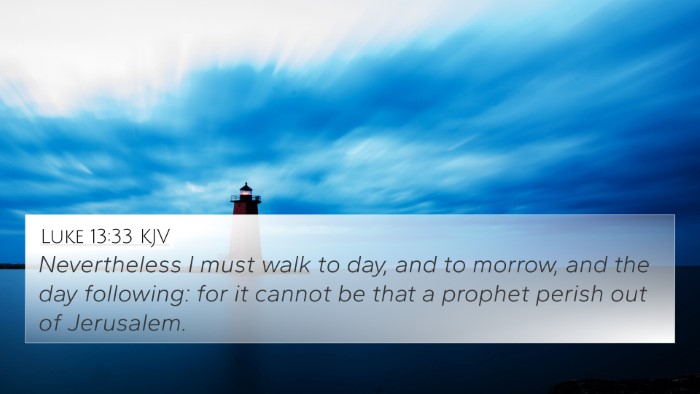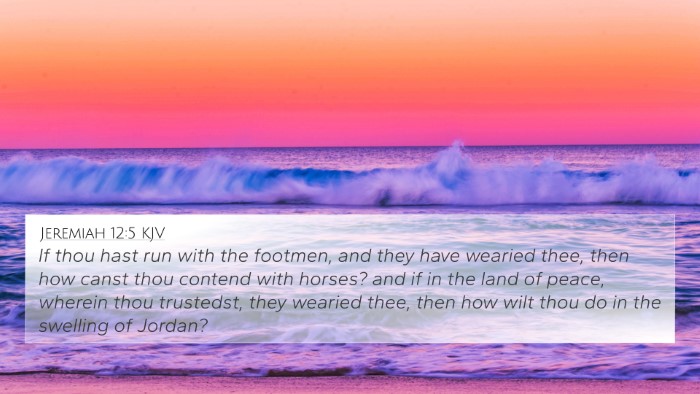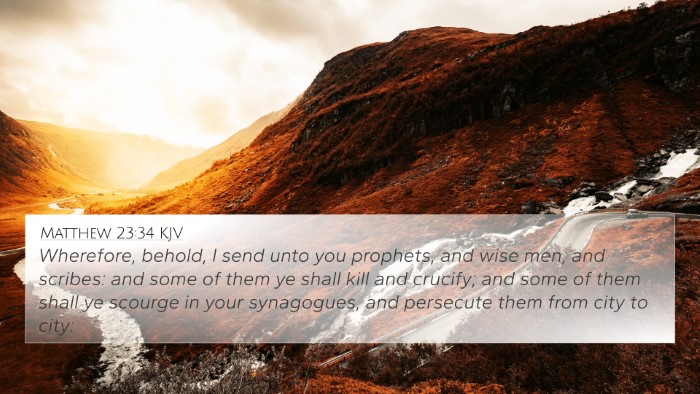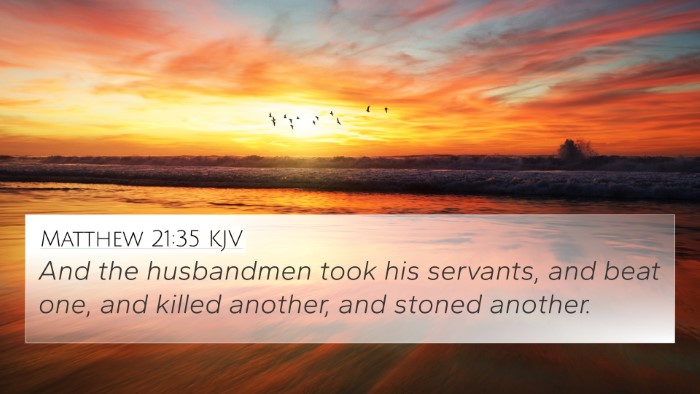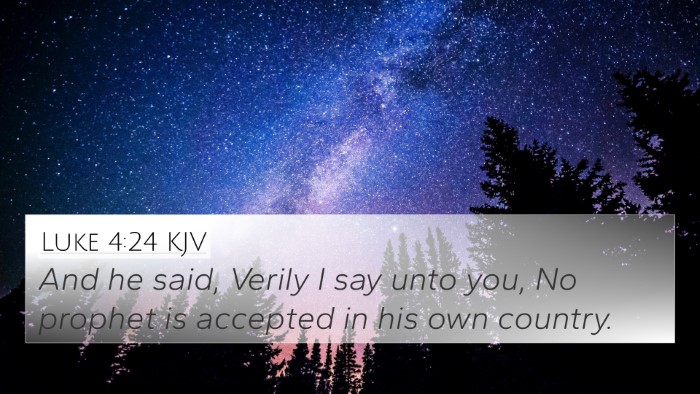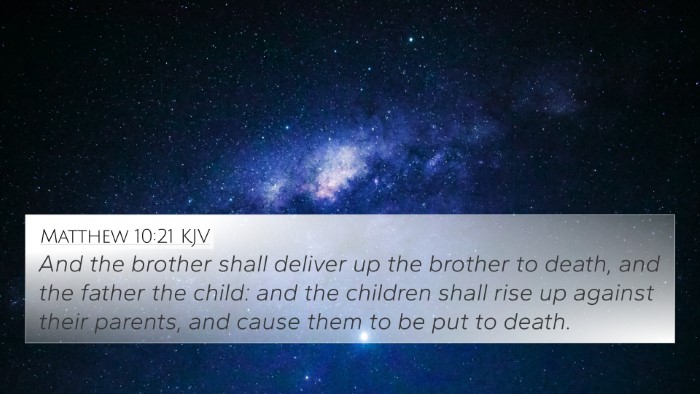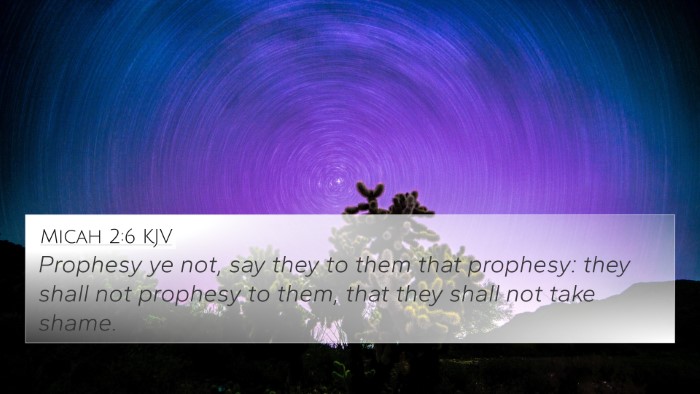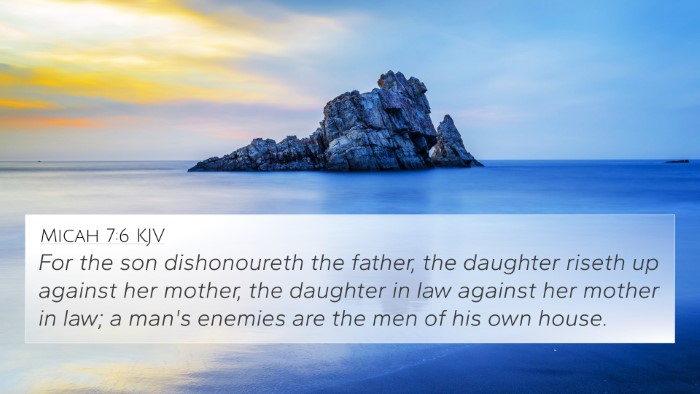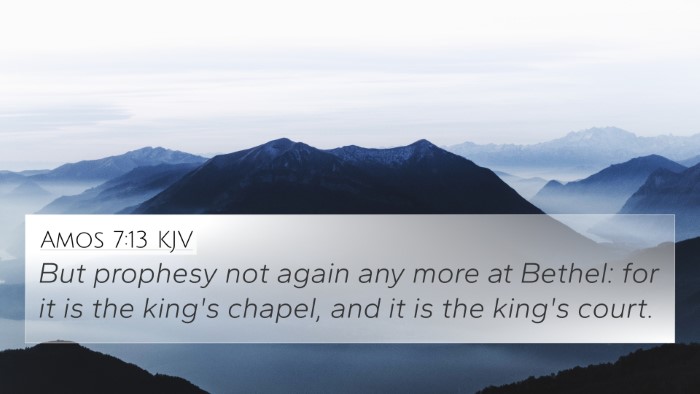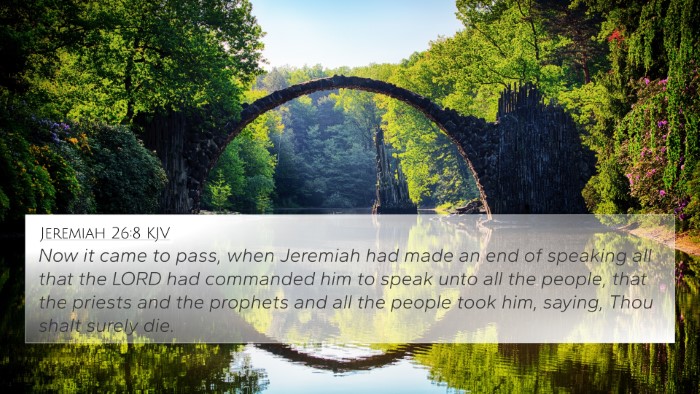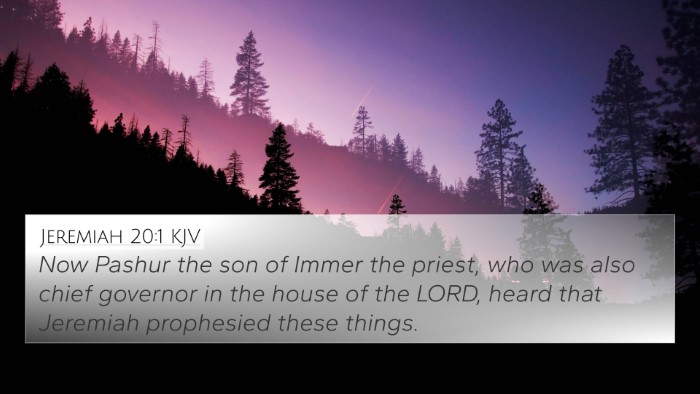Understanding Jeremiah 11:21
Jeremiah 11:21 states: "Therefore thus says the LORD concerning the men of Anathoth, who seek your life, saying, 'Do not prophesy in the name of the LORD, or you will die by our hand.' This verse reveals the tension between God's prophets and the people who oppose His message. The context emphasizes the hostility faced by Jeremiah, particularly from those in his own hometown.
Contextual Overview
This passage is set during a time when the people of Judah were in rebellion against God, choosing to ignore His directives and pursue their own paths. Jeremiah, as a prophetic voice, brought messages of warning and judgment, which were not well received.
Summary of Biblical Interpretation
The verse highlights several key themes:
- Divine Authority: God’s commands must be heeded, and His prophets' messages should not be disregarded.
- Opposition to Prophecy: The men of Anathoth represent the antagonism that prophets often face, particularly from those familiar with them.
- The Consequences of Rejection: Ignoring God’s warnings can lead to dire consequences, as indicated by the threats made against Jeremiah.
Insights from Commentaries
Matthew Henry's Commentary
Henry emphasizes the "dangerous situation" Jeremiah finds himself in and the "unjust treatment" of God's messenger. He points out the irony that those from Anathoth, who should know God’s truth, resist it the hardest.
Albert Barnes' Notes
Barnes notes that the opposition Jeremiah faces is rooted in a desire to maintain the status quo of disobedience among the people. He underscores the seriousness of the threat against Jeremiah's life as evidence of their deep-seated rebellion.
Adam Clarke's Commentary
Clarke explains that the men of Anathoth are fearful of Jeremiah's prophecies because they contradict their aspirations and challenge their authority. They resort to threatening violence as a means to silence the truth.
Related Bible Cross-References
- 1 Kings 18:17-18: Elijah faces similar opposition, where he is accused of troubling Israel for his prophetic messages.
- Matthew 5:11-12: Jesus speaks about the blessings bestowed on those who are persecuted for righteousness’ sake.
- Acts 7:52: Stephen references the persecution of the prophets by the ancestors of those who oppose him.
- Jeremiah 20:1-2: Further detailing the persecution Jeremiah faced, indicating that he was beaten and placed in stocks for prophesying truth.
- Luke 6:26: Woe to you when all men speak well of you, highlighting the danger of societal approval in contrast to prophetic truth.
- Revelation 11:10: The two witnesses face death for delivering God’s message, paralleling the hostility faced by Jeremiah.
- Acts 4:18-20: The Apostles are commanded to cease preaching but choose to obey God over men, mirroring Jeremiah's commitment to God’s word.
- Proverbs 29:27: The unjust are an abomination to the righteous, illustrating the moral conflict between God's messengers and their opposition.
- Micah 2:6: Similar themes of silencing prophets recur in the prophetic literature, showing a pattern in the resistance to God’s word.
- John 15:20: Jesus reminds His disciples of the world’s hatred toward them, echoing the historical plight of prophets.
Thematic Connections
Jeremiah 11:21 offers profound insights that resonate throughout Scripture:
- Perseverance in Prophecy: The constant theme of prophetic resilience despite opposition.
- Consequences of Rejection: A repeated message is that neglecting the voice of God brings judgment.
- Divine Protection: Although Jeremiah faces threats, God’s sovereignty ultimately prevails over human hostility.
Conclusion
In studying Jeremiah 11:21, we see a clear illustration of the relational dynamics between divine revelation and human resistance. The verse serves as a reminder of the importance of listening to God’s prophets, recognizing that the fear of men should never deter one from speaking the truth. For those seeking deeper understanding, the insights gleaned from cross-referencing other biblical texts provide invaluable context and clarity to the nuances of prophetic ministry and human response.
Tools for Bible Cross-Referencing
Utilizing resources such as a Bible concordance or reference guide can enhance one’s study of cross-referenced themes and connections throughout the Scriptures. Consider exploring:
- Bible cross-reference guide
- Comprehensive Bible cross-reference materials
- How to use Bible cross-references effectively in study and sermon preparation
Further Study
For individuals looking to engage more deeply with the themes presented in Jeremiah 11:21, consider examining related passages not only within the Old Testament but also how they find parallels in the New Testament, establishing a connectedness and dialogic relationship between Biblical texts.
